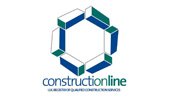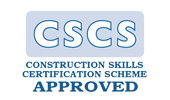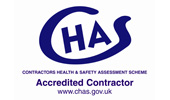Self Levelling Latex Screed
Self Levelling Latex Screed
I’m Andy Parkin, Managing Director of the Multi-Award Winning Speed Screed. I’m here to talk about self-levelling latex screed.
Does Self Levelling Latex Screed Really Self Level?
I would say that I don’t believe there is a “self-levelling latex screed” per say, yes a self-smoothing, but not self-levelling, please don’t lay the screed and expect it to level itself. However the term “self-levelling latex screed” is used extensively in the industry and I will use it here.
Self-levelling latex screed is a cement-based smoothing compound. Where it differs from other smoothing products is that there is a latex additive. Instead of mixing the compound with water, the water is replaced with bottle of latex, which is then added to the mix. There is no additional water, just pour the bottle of latex in.
Then when laying vinyl, ceramic tiles, carpet and other floor coverings. latex floor screed levels out uneven substrates leave a smooth surface to bond to.
The reason that the additive is latex, is to give the screed a degree of flexibility. If there is any slight movement with the substrate, the latex will allow for a small degree that slight movement. This allows some products to be bonded to materials such as plywood.
Self-levelling latex screed & Construction Types
Also when we talk about latex floor screed, we need to consider the different types of screed construction. There are three types:
- Bonded is very relevant to the self-levelling latex screed, as it relies on the bond with the substrate. Latex floor screed would be suitable for this type of construction.
- Unbonded is where you have a membrane in between the substrate and the screed. This type of construction is not something that would be suitable for a self-levelling latex screed.
- Floating construction is where you have the screed sat on insulation, be it acoustic or thermal insulation. This type of construction is not something that would be suitable for a self-levelling latex screed.
Sound Substrate
When bonding I think it is important to highlight the process. When looking at the substrate, it needs to be sound. When we say “sound,” it needs to be solid. If you have crumbling, cracking, or other issues, then action needs to be taken before laying the screed. There is no point in laying a latex floor screed onto something that isn’t stable, because it will only result in the screed cracking and/or de-laminating.
Contamination
Checks should be made to ensure that the substrate is not contaminated. Contamination can be a variety of things, oils, grease, dust, anything that may have gone into the pores of the screed (the capillaries of the screed). If there is contamination it may require some mechanical surface preparation, which may be grinding/scabbling or shot blasting. If there is paint on the substrate then it will need to be removed, before laying .
The surface needs to be clean and vacuumed if there is dust/dirt on the surface. Before the latex floor screed is laid a primer needs to be applied to the substrate to assist in the bonding of the latex screed and the substrate. Sometimes it can go down without the primer, always read the instructions before laying. Either way you are going to need some penetration of the surface. It needs to bond, so it may be that you have to grind off the first couple of millimetres of the matrix to get down to something that is bondable.
What If?
If the substrate is power floated concrete then the top of the matrix will need to be removed to get to the more open textured concrete that will allow the primer to penetrate. There are certain products that may go down directly onto it a power floated surface, but again, you would have to look at the requirement for each individual product. In general, you would be looking at mechanically altering the surface to allow for better adhesion between the screed and the substrate.
Self-levelling Latex Screed Thickness
Thickness varies from product to product, however as a general guideline please find the depths below:
- Minimum depths are usually 2-3mm, however there are some products that can go down to “featheredge”
- Maximum depths are around 10-15mm, however with the addition of bulking aggregates (normally kiln dried sand) some self-levelling latex screed can go up to 30mm.
Self-levelling latex screed is normally used to smooth the surface of concrete and screeds, when laying thin vinyl or thin floor coverings. Slight imperfections in substrate will show up in these types of floor coverings. A latex floor screed will smooth out those slight imperfections.
I hope this helps with your “self levelling latex screed” questions, if you would like any further help please get in touch. We love to help!
Our Accreditations
About Speed Screed
Speed Screed Limited was founded on the key principle of providing first-class customer service. It has since built itself an impressive reputation for delivering high-quality projects across the United Kingdom.
The company’s success is built on its belief in quality work, attention to detail, on-time completion, strong working partnerships and the recruitment of top-level staff. about us >








